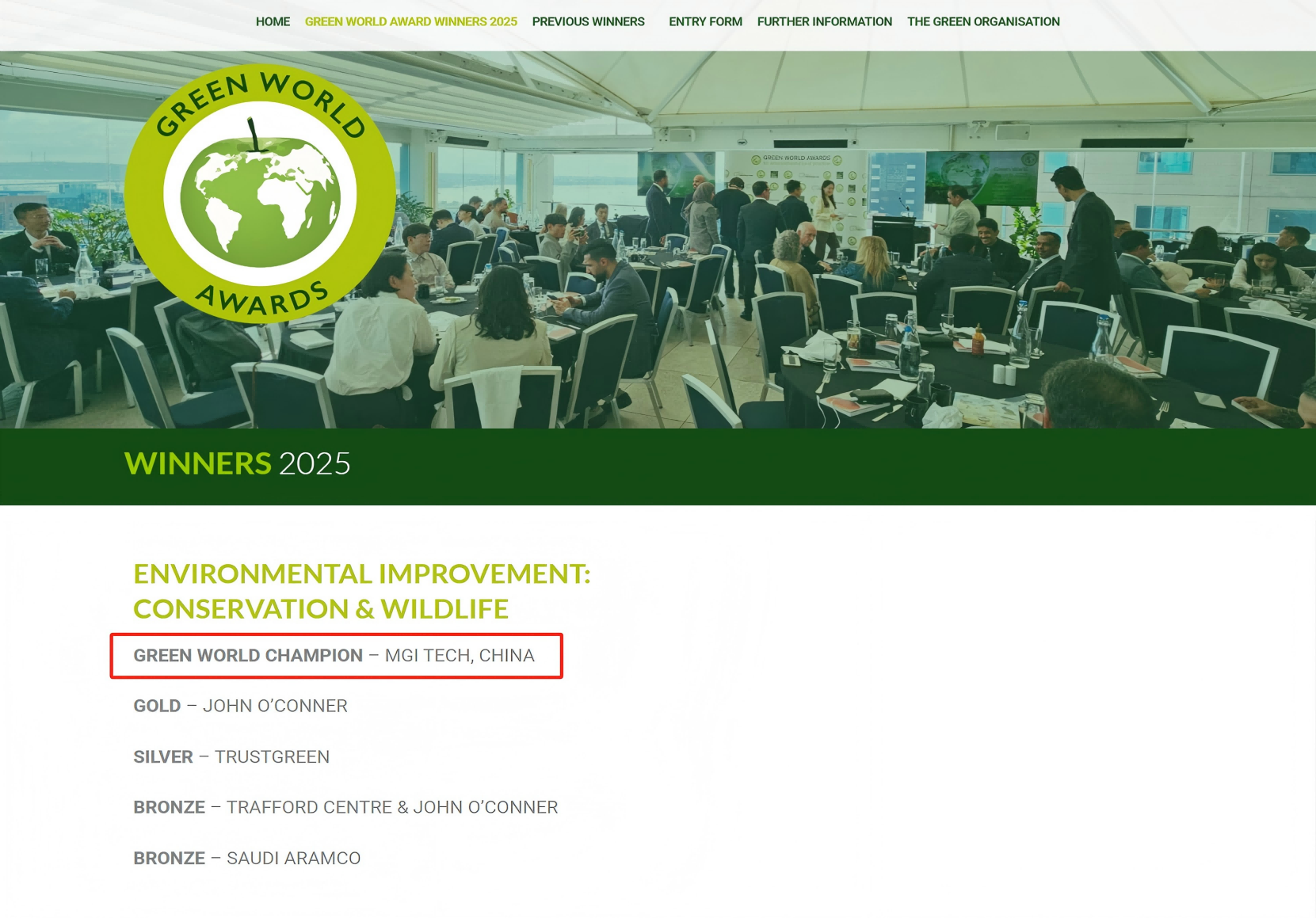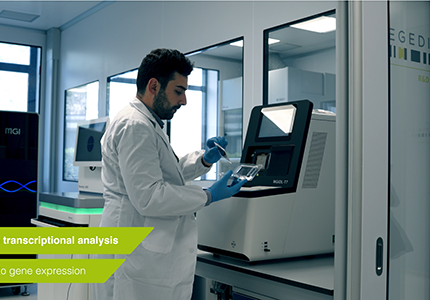HAIKOU, CHINA, January 28, 2021--MGI’s "mobile nucleic acid testing and gene sequencing" platform starts operation in Haikou, Hainan province. The two laboratories, namely the Container Sequencing Lab, can be used either separately or together. It can provide large-scale nucleic acid testing for Haikou, but also help to decode whole genome sequence of the coronavirus, contributing to the local pandemic control during the Chinese spring festival.
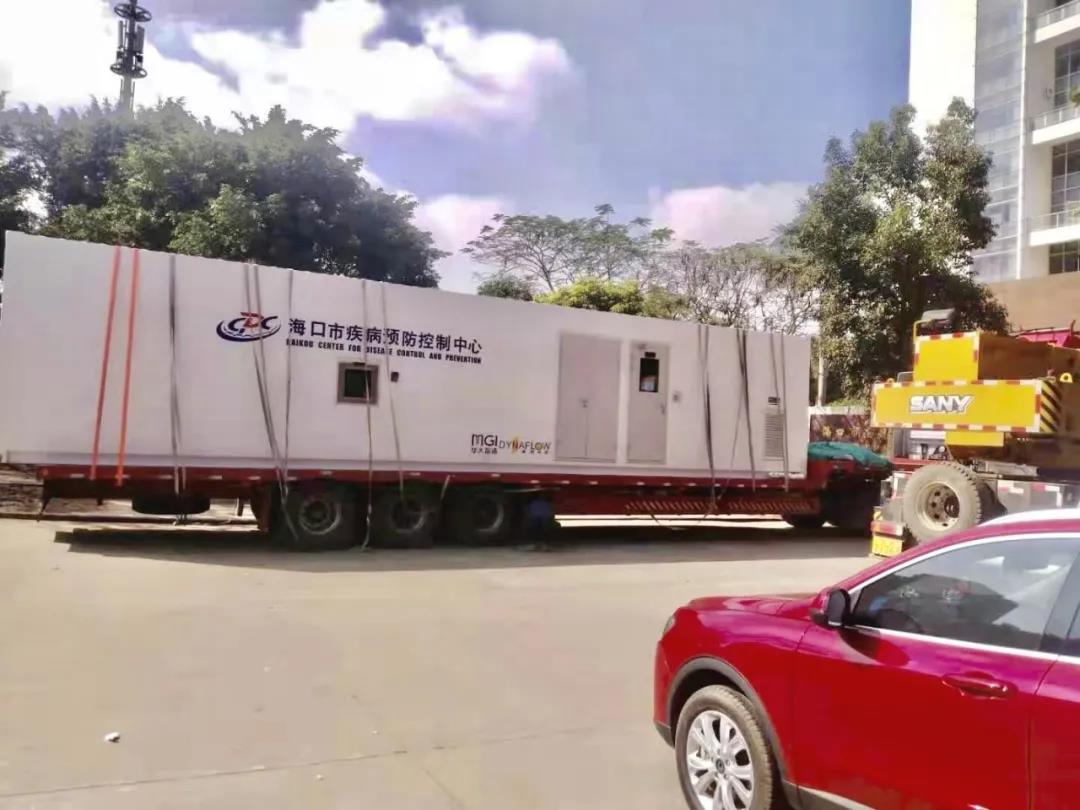
There is a higher probability of mutations, as the coronavirus has spread across the world. Therefore, it is very important to decode the whole genome sequence and monitor the viral variations. The authority announces a new policy on January 20th, requiring all local councils to increase testing and viral gene sequencing.
In response, MGI’s innovation, the container lab, is designed to meet such large-scale testing demands. The container lab can be flexibly installed in places like train stations, sea ports, and communities to accommodate testing requirements. The lab can monitor the virus mutation, contributing to effective pandemic control.
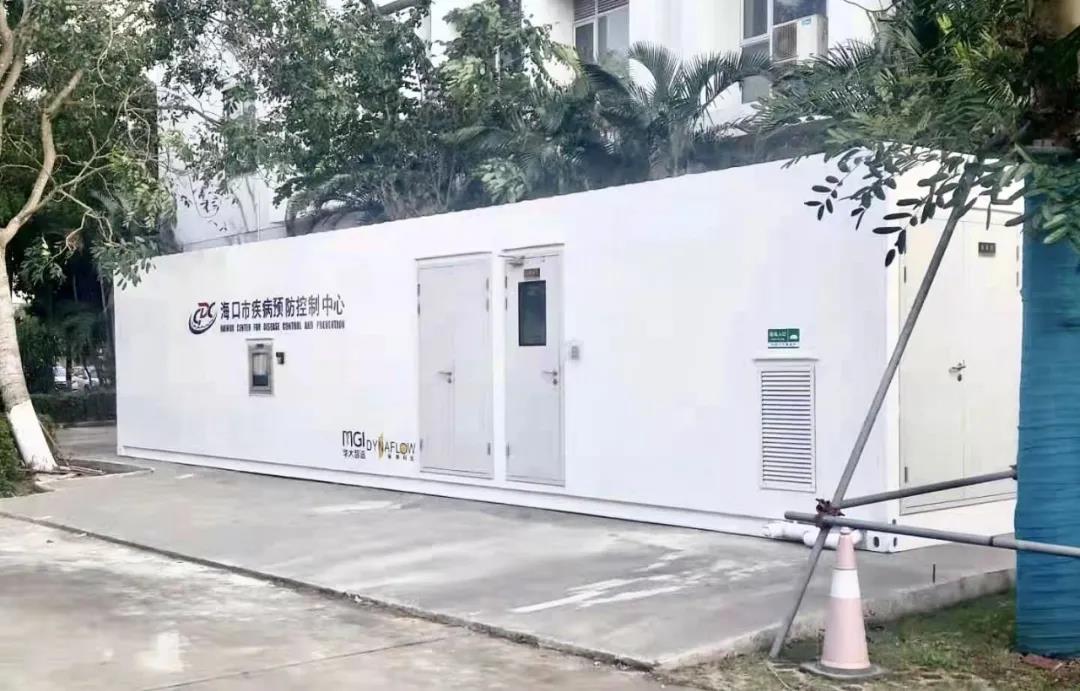
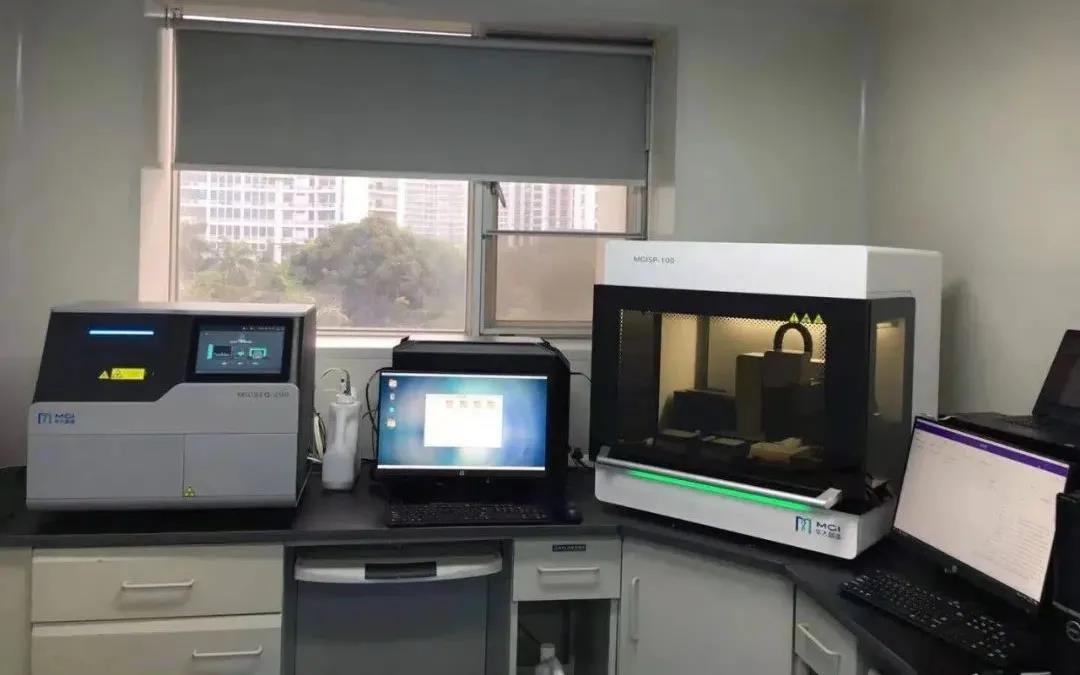
According to Li Ping, Deputy Chief of microbiological lab of Haikou Centre of Disease Control (CDC), the container lab consists of four major functional areas: reagent preparation, sample preparation, amplification and disinfection, approximately 34 square meters in area. With the gene amplification method, the all-in-one testing system can greatly improve the efficiency.
Each cabin in the container lab requires 4 to 5 people to operate, and it can process 6,000 samples per day, and 60,000 samples per day if 10 samples are integrated in one tube for batch testing. Thanks to the integrated package of MGISTP-7000 high-throughput automated sample transfer processing system combined with MGISP-960 automated nucleic acid extraction equipment and MGI ZLIMS information management platform, the integrated package can automate the barcode scanning, information verification and liquid transfer, and nucleic acid extraction process, and provide real-time monitoring throughout the entire process.
MGI’s “Mobile Nucleic Acid Testing and Sequencing” platform
1. The lab can process 6,000 samples per day, or 60,000 samples per day if 10 samples are integrated in one tube for batch testing.
Advanced automation equipment and systems have replaced labor operation. The lab is equipped with MGISTP-7000 high-throughput automated sample transfer processing system, MGISP-960 automated nucleic acid extraction equipment and MGI ZLIMS information management system.
2. Sequencing Laboratory:monitoring virus mutation
Powered by MGI’s automated sample preparation system MGISP-100, high-throughput gene sequencer MGISEQ-200 and PFI (Pathogen Fast Identification) software, the lab can decode the whole genome sequence of the virus.
3. Container Lab: faster
It can be flexibly installed in places like train stations, seaports and communities for pandemic control. It allows centralized testing, and greatly eliminates the need for sample transportation.
4. Container lab: safe and reliable
Compliant with P2 laboratory standard, the laboratory consists of three main functional areas: reagent preparation room, sample processing room and testing room. At the same time, it adopts the negative pressure system and ultraviolet disinfection system, and is equipped with a changing room, air conditioning and an electromechanical room. In the operation process, the lab technicians will follow one-way process to avoid cross contamination. Windows and a buffer room are used to separate the lab area to avoid aerosol pollution and ensure a safe environment for the operators.
The gene sequencing platform can be connected to the container lab. After the samples are identified positive in the container laboratory, the virus can be rapidly identified accurately on MGI’s gene sequencing platform. The whole genome sequence of the virus can be obtained at the same time.
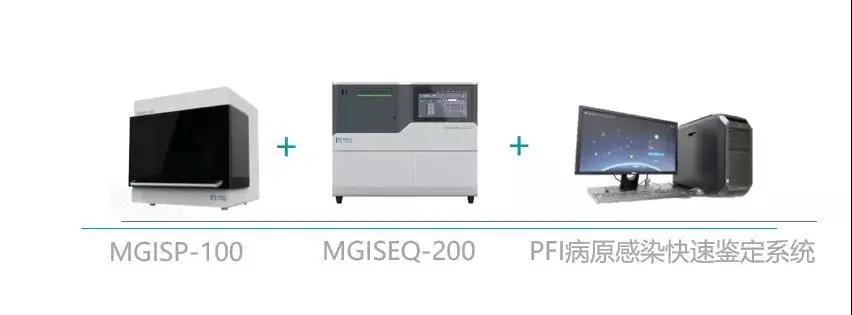
Since the outbreak of COVID-19, MGI has accumulated extensive frontline experience in the study of virus genome sequencing and monitoring of viral variation. As early as December, 2019, among the first batch of 13 novel coronavirus genome sequence data submitted to GISAID, a global shared influenza virus database, there were 5 cases of data were obtained by using MGI’s high-throughput sequencing platform, producing first-hand information for studying and analyzing the evolutionary origin and pathogenic and pathological mechanism of the novel coronavirus.
At the beginning of the epidemic, we urgently delivered two DNBSEQ-T7 ultra-high-throughput sequencers to Wuhan to fully support the fight against the epidemic. Based on the efficient and accurate sequencing capabilities of DNBSEQ-T7 and MGISEQ-2000 (DNBSEQ-400), we were the first to obtain the whole genome sequence of the virus, which enabled us to develop high sensitivity and specificity RT-PCR kit.
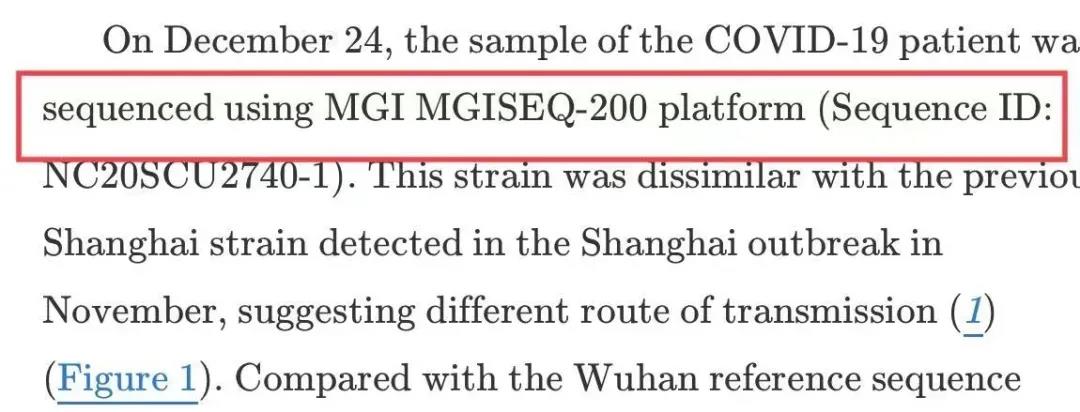
China CDC weekly
On December 14, 2020, the first case of new variant COVID-19 originating in overseas detected in a returning student. The sample of the COVID-19 patient was sequenced using our MGISEQ-200 (DNBSEQ-G50) platform. The national CDC defined this imported strain as the first imported VUI202012/01 variant in China, posing a great potential threat to the prevention and control of COVID-19 in China.



 Sequencer Products: SEQ ALL
Sequencer Products: SEQ ALL














 Technologies
Technologies Applications
Applications Online Resources
Online Resources Data Bulletins
Data Bulletins Service & Support
Service & Support Introduction
Introduction Newsroom
Newsroom Doing Business With Us
Doing Business With Us Creative Club
Creative Club








